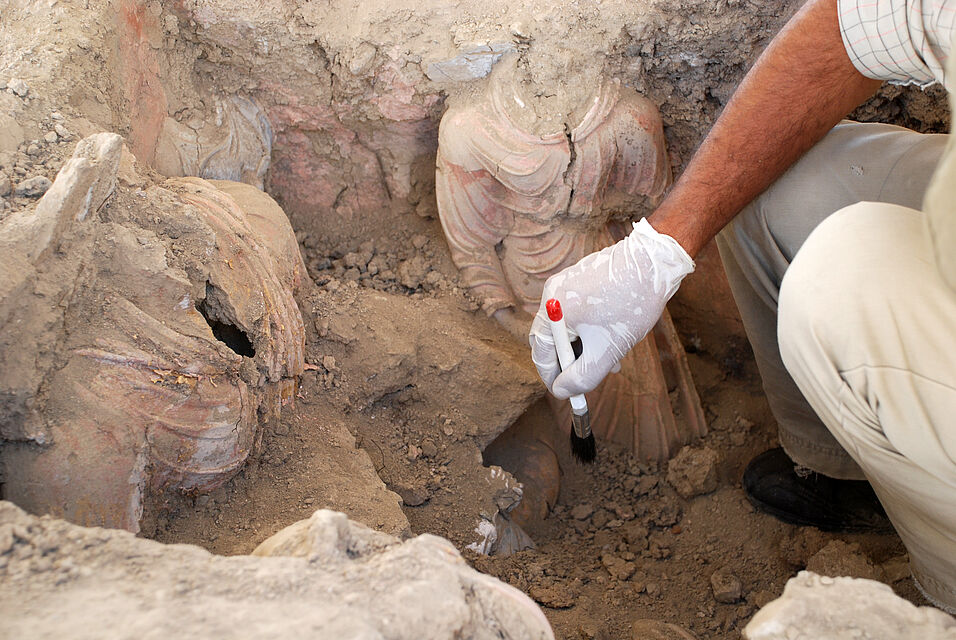The site of Mes Aynak lies in Logar, about 40 km south-east of Kabul. Once an al-Qaida training camp, it is home to a constellation of relatively small historical settlements of different nature, both Buddhist and civil as well as workshop areas connected with ancient mining activities. The main phases of the site have been provisionally dated between the fifth and ninth centuries, but earlier phases cannot be excluded. The archaeological site, which covers an area of several square kilometers, sits on top of the world’s second-largest copper reserve and is therefore destined to become a giant open-cast mine. Excavations started in 2011 and were scheduled to be completed by January 1, 2013. Since then, the initially set deadline has been repeatedly extended, but the pressure of the emergency work, combined with objective problems, has so far resulted in a serious loss of data. Based on personal visits to the site and on the documentation generously made available by the Archaeology Institute of Afghanistan and the Délégation Archéologique Française en Afghanistan, the lecture will offer a glimpse of the informative potential of the site in relation to artistic, economic and political aspects of Buddhism in a crucial place and time.
Buddhism in context. The site of Mes Aynak, Afghanistan (c. 5th–9th cent. CE)
24.05.2019 15:15 - 16:45
Organiser:
Institut für Südasien-, Tibet- und Buddhismuskunde
Location:
Seminarraum 1 des Instituts für Südasien-, Tibet- und Buddhismuskunde, Universitätscampus, Spitalgasse 2, Hof 2.7, 1090 Wien

